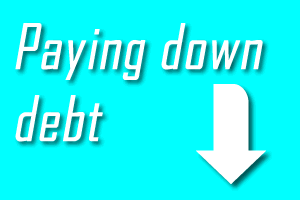After four years of university study and several more for a second or third degree, students are left with tremendous debt and a big hole in their pockets. Despite attempts to stay within a budget, find secure employment and start a payback plan, graduates find themselves stuck in the mire of financial obligations and bank loans.
Not all graduates face the same fate and the type of degree can determine the ease of finding proper employment as well as the salary associated with it. For example, many educators today view a humanities degree as practically useless when it comes to procuring a job with any semblance of sufficient income and specialty degrees such as those in the medical, dental or engineering fields require extra years of study and hence additional loans.
According to an article published in The Atlantic in March 2014, even those who continue on with their studies and obtain humanities Ph.D.s have job prospects no better than those who end their studies earlier. In the Atlantic article, English professor William Pannapacker suggested that a humanities Ph.D. “will place you at a disadvantage competing against 22-year-olds for entry-level jobs that barely require a high-school diploma.” Pannapacker went on to advise would-be graduate students to recognize that a humanities Ph.D is now a worthless degree and they should avoid going into further debt in order to acquire one.
Andrew Green, associate director at the Career Center at the University of California, Berkeley has a different take on the situation. He admits that there is no doubt that humanities doctorates have struggled with their employment prospects, but he points to less widely known data showing that between a fifth and a quarter of these doctorates go on to work in well-paying jobs in media, corporate America, non-profits, and government.
Paula Chambers, founder of Versatile Ph.D., a service that prepares graduate students for the non-academic job market, takes a positive view of the employment situation for humanities graduates. Chambers points to humanities Ph.D.s in many industries far removed from academia such as a Ph.D. in Greek and Roman history who landed a marketing job at a wine estate, a Ph.D. in British history who is now a branch chief at the National Parks Service or a Ph.D. in Classics exerting influence as a director at a hedge fund.
But were these the goals set by humanity students when they started their graduate education? How long will it take them to repay the loans they incurred in order to reach the academic level they did?
When it comes to graduates in other disciplines, the numbers aren’t much better. According to a research study conducted by UK specialist insurer, Endsleigh and reported in England’s Guardian in August 2014, only 34% of the then recent graduates had found full-time work in the career of their choice.
The vast majority of graduates do, eventually, find work, but often it is in a different field to their degree. According to Higher Education Statistical Agency figures for 2012-2013, only 8% of the students surveyed were unemployed six months after leaving university. But how much were they earning? The Endsleigh survey found that almost half (48%) of them said their current wage was lower than expected, with 57% currently earning £15,999 or less with the average salary around £20,000. Certainly not enough to pay back all the debts accrued over the years of study.
One of the solutions to the debt-study dilemma that has proven successful but which may not be appropriate for everyone is to work while attending school. Both small and large corporations are eager to employ students who will agree to a lower salary while attending classes towards their degree. On some levels it is a win-win situation. The student gains work experience and has some income towards his/her studies while the hiring firm pays less for a worker who, at the end the tenure, may well prove appropriate to the position and be taken on as a permanent member of the staff without the need of retraining for the job.
In the above situation, although there no guarantee of employment upon completion of the student’s degree, at least an accumulated debt of untold proportions has been avoided.
The most obvious direction to choose for avoiding education loans is simply to postpone studies altogether until the money is there. But this is a catch-22. No education, no job. No job, no money. What is a student to do?
The problem of student debt is growing. Here are the statistics according to a report posted on CNBC in June, 2015, and the numbers are staggering: There is more than $ 1.2 trillion in outstanding student loan debt, 40 million borrowers and an average balance of $ 29,000. The high levels are serving to perpetuate or even worsen economic inequality and are undercutting the opportunity and social mobility that higher education should provide.
Perhaps one way to avoid the debt altogether would be for students to plan to put away a small amount of money on a steady basis as soon as they are able and to learn how to invest their money early on in their lives. Opening an investment account with a good broker can be done at any age with the approval of an adult and as an individual from the age of 18. Investing can also be fun but learning to do it properly requires at least the minimum of training and education.
With today’s precarious global financial situation accelerating, it appears that the question of student debt and its repercussions remains a large part of the economic equation.
This article by Cina Coren first appeared on DailyForex.com and was distributed by the Personal Finance Syndication Network.
Personal Finance Syndication Network


 Since June, we have drastically changed our lives — in many ways. Getting our financial life in order is one big way we are changing everything. It feels great. Paying off the first (credit) card was amazing,” he said.
Since June, we have drastically changed our lives — in many ways. Getting our financial life in order is one big way we are changing everything. It feels great. Paying off the first (credit) card was amazing,” he said.